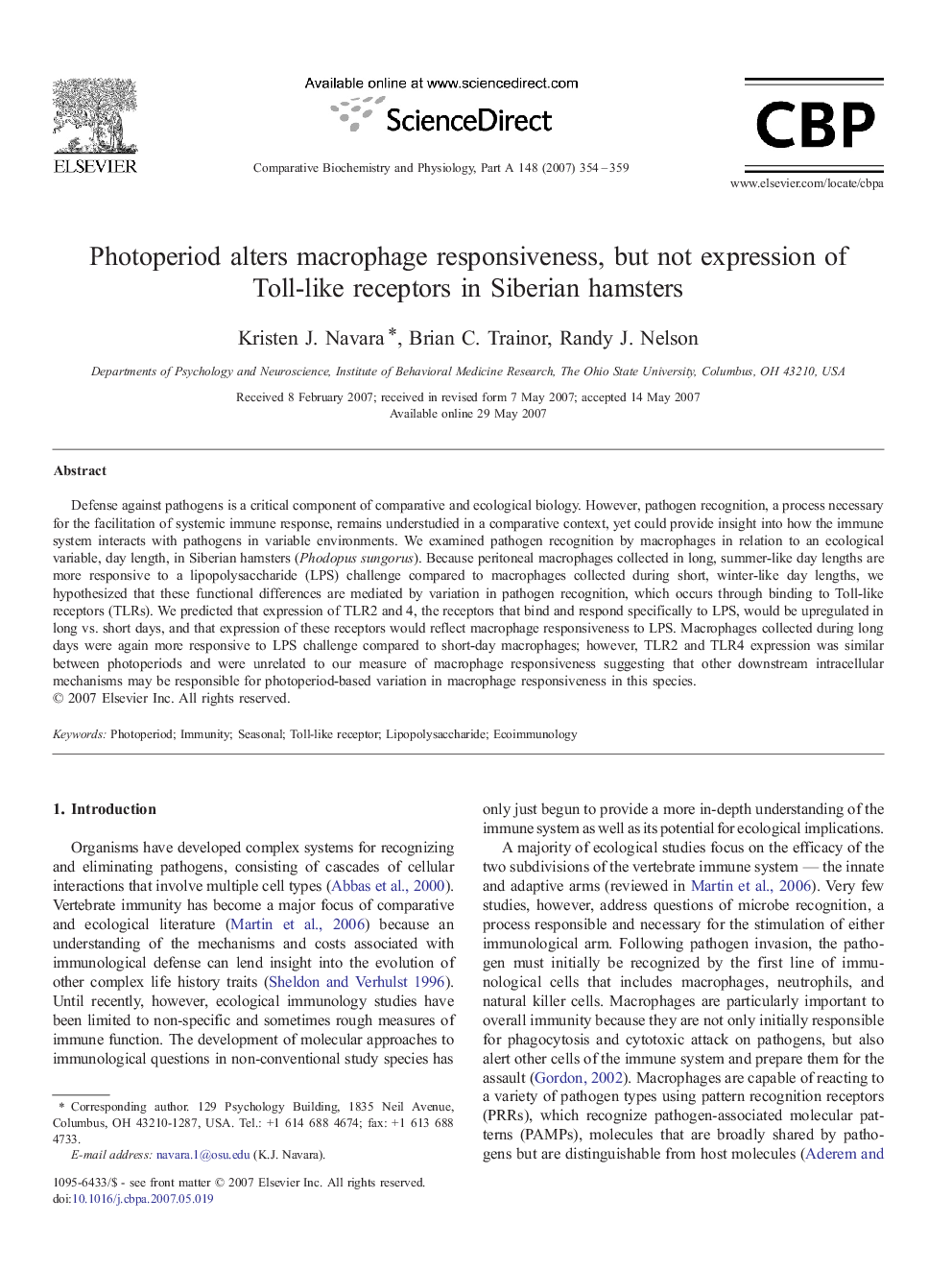| Article ID | Journal | Published Year | Pages | File Type |
|---|---|---|---|---|
| 1973010 | Comparative Biochemistry and Physiology Part A: Molecular & Integrative Physiology | 2007 | 6 Pages |
Abstract
Defense against pathogens is a critical component of comparative and ecological biology. However, pathogen recognition, a process necessary for the facilitation of systemic immune response, remains understudied in a comparative context, yet could provide insight into how the immune system interacts with pathogens in variable environments. We examined pathogen recognition by macrophages in relation to an ecological variable, day length, in Siberian hamsters (Phodopus sungorus). Because peritoneal macrophages collected in long, summer-like day lengths are more responsive to a lipopolysaccharide (LPS) challenge compared to macrophages collected during short, winter-like day lengths, we hypothesized that these functional differences are mediated by variation in pathogen recognition, which occurs through binding to Toll-like receptors (TLRs). We predicted that expression of TLR2 and 4, the receptors that bind and respond specifically to LPS, would be upregulated in long vs. short days, and that expression of these receptors would reflect macrophage responsiveness to LPS. Macrophages collected during long days were again more responsive to LPS challenge compared to short-day macrophages; however, TLR2 and TLR4 expression was similar between photoperiods and were unrelated to our measure of macrophage responsiveness suggesting that other downstream intracellular mechanisms may be responsible for photoperiod-based variation in macrophage responsiveness in this species.
Related Topics
Life Sciences
Biochemistry, Genetics and Molecular Biology
Biochemistry
Authors
Kristen J. Navara, Brian C. Trainor, Randy J. Nelson,
